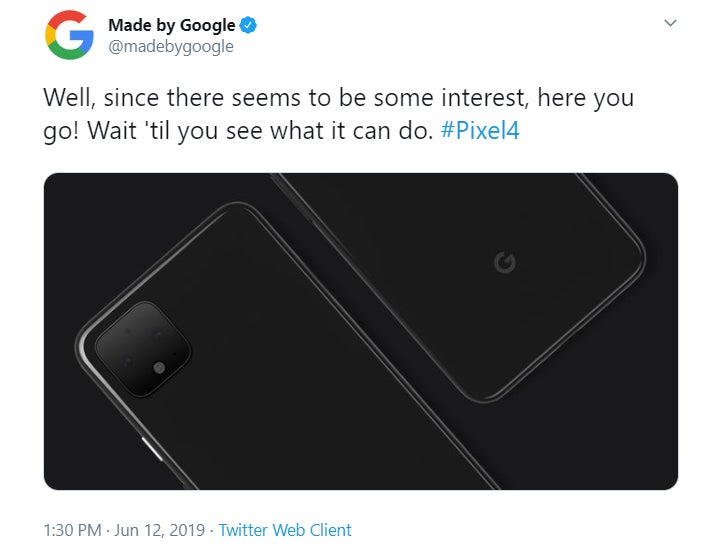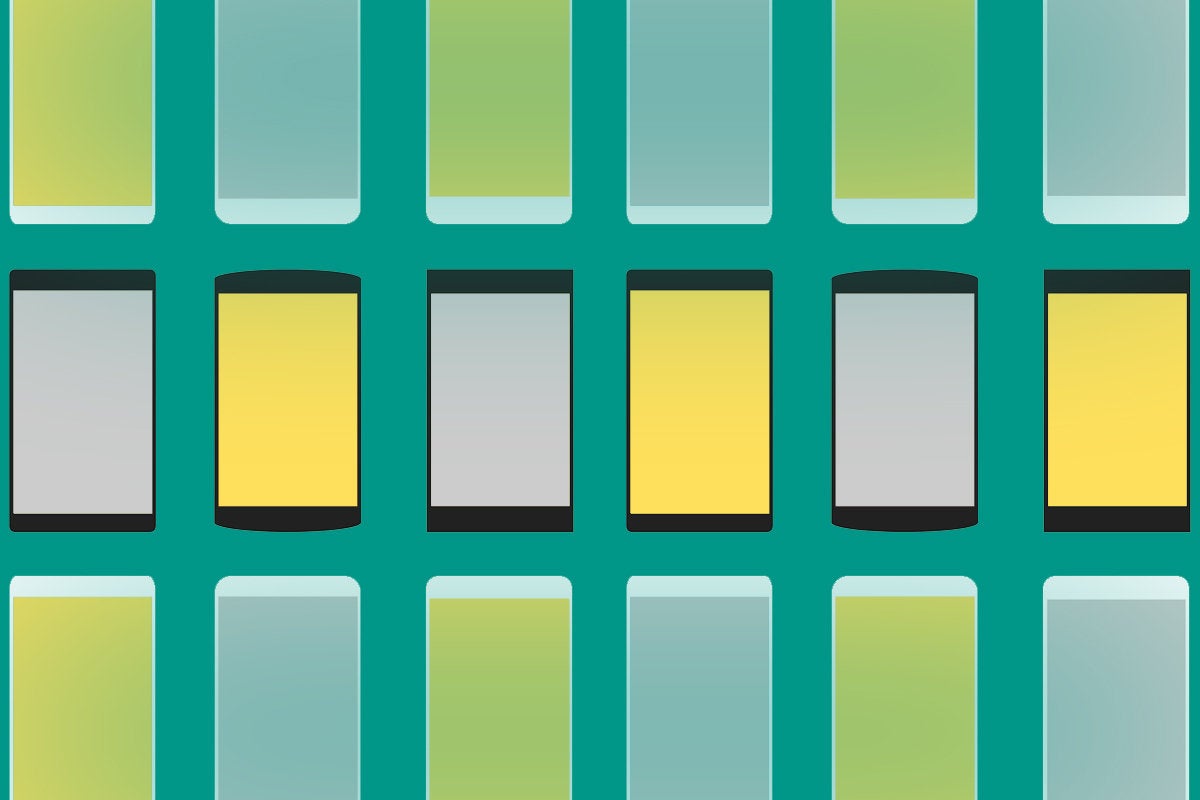Look, I get what you're probably thinking right now. I'm normally the guy who calls shenanigans when some over-the-top article claims an unreleased product is somehow "changing everything" in a suspiciously vague way.
Such grandiose claims deserve to be scrutinized and, in most cases, brushed off as sensational silliness. This, however, is not one of those situations.
We've talked plenty about the radar technology in Google's upcoming Pixel 4 phone and how it could, at least in theory, be a significant point of differentiation not only for the Pixel 4 but for much of Google's self-made hardware lineup. And all of that is true, at least on a theoretical level (for now). Today, though, I wanted to explore another side of the Pixel 4's pending arrival — one that's less about the device itself and more about the way Google's presenting it.
In past years, y'see, Google has suffered from an increasingly common fate in our modern-day mobile tech universe — a little somethin' I like to call smartphone thunder theft (a catchy phrase if I've ever heard one; dibs on using that as a future band name). You know what I'm talking about, right? The way it's damn near impossible for a device-maker these days to keep much of anything under wraps and hang onto any significant surprises for its grand reveal of a high-profile product.
Leaks are everywhere, and given the nature of phone hardware and the large number of parties invariably involved with the process, plugging up those leaks is easier said than done. And yet, almost all the major smartphone manufacturers cling onto the tired old playbook of holding a splashy press conference at which some casually dressed executive goes through the motions of "unveiling" a shiny new device. By design, they have to act like they're showing us something we haven't seen a thousand times already, probably in high-resolution detail.
It feels almost painfully contrived — like the folks on stage clearly know no significant surprises are involved but are forced to play the role, anyway, and go through the motions of the New Cellular Telephone Event (because it's not just a press conference, damn it, it's an event — and probably a special event, at that). It's a trope introduced by Apple during the Steve Jobs era of showmanship and emulated by pretty much everyone still today.
But so much has changed since the theatrical unveilings of those early smartphones, and nowadays, the motions feel both antiquated and awkward — for a number of reasons, not least of which is the limited level of actual surprise remaining by the time the VP of Relatable Hoodie-Wearing takes the stage.
Well, this year, Google seems to be flipping the script. Instead of following the standard prescribed PR strategy of ignoring every leak that comes along, citing a broad policy against "commenting on leaks and speculation," and then going through the big "SURPRISE!" charade weeks later as if nothing had happened, Google is actually now embracing the leaks and one-upping them with its own prematurely self-leaked stream (a series of words that'd be serious cause for concern in any other scenario). And by doing so, it's reclaiming control of the narrative surrounding its upcoming phone.
It all started almost two months ago, when Google took the jaw-dropping step of responding to an emerging series of leaks showing the Pixel 4's physical design by posting an actual image of the phone on its own — via its Made by Google Twitter account.
 Twitter
Twitter The message was simple: "Yeah, this is the phone. So what? What really matters is what's on the inside" — a message Google pushed forward even further with its confirmation of the Pixel 4's radar-driven hand gesture system last week.
It's a notion we've talked about plenty in these virtual quarters of ours — the idea that Google's Pixel phones aim to stand out from the pack by emphasizing the area in which no other Android device-maker can truly compete: software. The strategy showed up with the company's first-ever Pixel phone in 2016, became even more apparent with the second-gen follow-up a year later, and grew into a thematic part of the phone's presentation with last year's third-gen model. So in some ways, going this extra step with the Pixel 4 and deflating its own big reveal ahead of time seems like a strangely natural progression for Google to make.
It also seems like a sensible shift for the current state of smartphone hardware, where devices themselves are rarely all that exciting (or at least rarely exciting for any legitimate real-world reason). Moving away from the manufactured awe surrounding a phone's form, acknowledging the external vessel for what it is, and then even talking a little about the device's more unusual elements in a deliberate-drip approach both neutralizes the leaks and reframes the focus where it makes the most sense for a phone in 2019 — on the innards, the user experience, the parts of the product that actually affect you most directly on a day-to-day basis over the years that you own it and not just on the superficial qualities you think about for the first 24 hours it's in your hands.
Interestingly, it could also steal some of the thunder from the inevitable theatrical reveal of Apple's iPhone 11 — a New Cellular Telephone Event expected to occur in early September, probably several weeks ahead of Google's official Pixel launch. The iPhone 11 is expected to look curiously similar to the Pixel 4 in design, all the way down to the square-shaped multicamera module. (Both phones have been under development for many months now, so let's spare ourselves the pointless "who copied whom" game, shall we?) Apple will effectively be the second company to show off a phone with such a form, then, despite the fact that it'll be the first to hold an event around it.
Now, is this shift suddenly going to catapult the Pixel from niche-player status to industry-dominating device? Of course not. It does, however, feel like a refreshingly prudent pivot — an entirely appropriate change for Google, in particular, and one that can only help the Pixel's position.
Here's hoping it's just the first step in a long overdue move away from an outmoded era.
Sign up for my weekly newsletter to get more practical tips, personal recommendations, and plain-English perspective on the news that matters.

[Android Intelligence videos at Computerworld]






